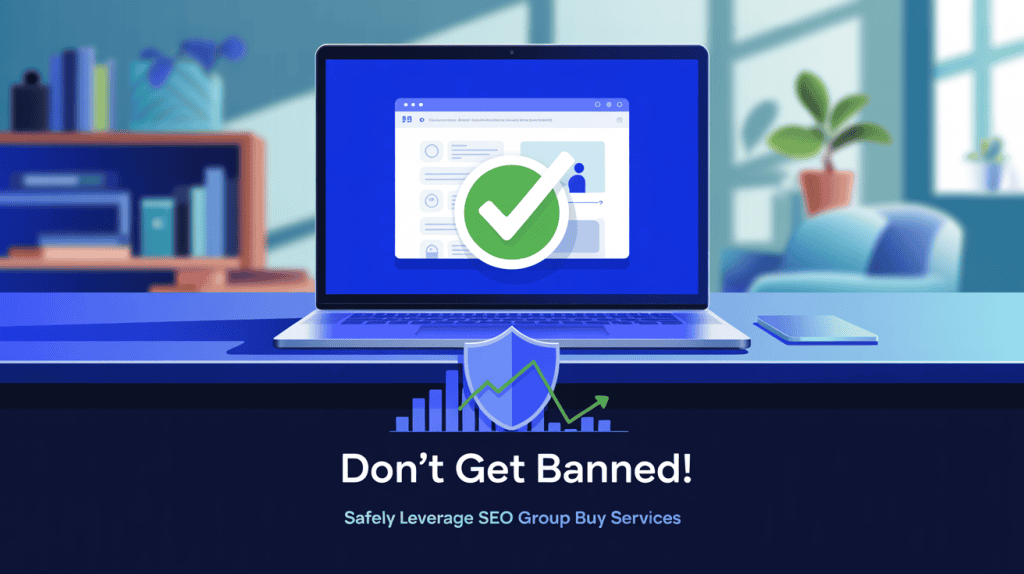Don't Get Banned! A Guide to Navigating SEO Group Buy Services Safely
Don’t Get Banned! A Guide to Navigating SEO Group Buy Services Safely
1. Introduction: The Double-Edged Sword of SEO Group Buys
The digital marketing landscape relies heavily on sophisticated tools for tasks ranging from keyword research and competitor analysis to content optimization and performance tracking. However, the high subscription costs associated with premium Search Engine Optimization (SEO) and marketing platforms often place them beyond the reach of freelancers, small businesses, and marketers operating on tight budgets. This financial barrier has fueled the rise of SEO Group Buy services, a phenomenon presenting both significant opportunities and substantial risks.
Defining SEO Group Buy Services

At its core, an SEO Group Buy service operates on a principle of shared access. Multiple users pool their financial resources, enabling a provider to purchase official subscriptions to a suite of premium digital tools.1 The provider then distributes access to these tools among the participating users, typically through shared login credentials, custom-developed browser extensions, or centralized online dashboards.3 This model effectively allows individuals to utilize powerful software collectively, drastically reducing the per-user cost.1
It is crucial to understand, however, that this mechanism inherently involves sharing accounts originally intended and licensed for single users or specific, limited teams. This fundamental aspect—account sharing—directly contravenes the terms of service (ToS) stipulated by the original tool developers (like Ahrefs, SEMrush, Moz, etc.) and is the primary source of the risks associated with these services. The scope often extends beyond purely SEO tools, frequently bundling access to platforms for graphic design, content writing, AI assistance, advertising intelligence (spy tools), and stock media.3
The very existence and widespread popularity of these group buy services point towards a significant unmet demand within the market. The substantial cost of direct subscriptions for industry-standard tools, often exceeding $100 per month per tool 6, creates a considerable accessibility gap, particularly for individuals and smaller entities, including those in emerging markets.3 Group buy services exploit this gap, offering access for a mere fraction of the official price, sometimes as low as $10-$40 per month for tools that would otherwise cost hundreds.6 This stark price differential is a powerful driver of demand, indicating that the standard SaaS pricing models for these professional-grade tools inadvertently exclude a large segment of potential users. Consequently, group buys can be seen as a market reaction, albeit a risky one, to the perceived unaffordability of essential digital marketing technology.
Furthermore, the term “group buy” itself, while suggesting collective purchasing power, often obscures the operational reality of account sharing.1 While users pool funds, the provider typically purchases standard licenses and then facilitates shared access, an action that directly violates the licensing agreements of the software companies.3 This inherent conflict between the group buy model and the software providers’ ToS is the root cause of the most significant risk: the potential for account suspension or outright bans. The seemingly innocuous “group buy” framing masks this fundamental violation.
The Undeniable Appeal: Access vs. Affordability
The primary allure of SEO group buy services is undeniable: they provide access to expensive, high-powered digital marketing and SEO tools at dramatically reduced prices.1 Platforms like Ahrefs, SEMrush, Moz Pro, and others, which are considered industry standards for effective digital strategy, become accessible to users who would otherwise be priced out.6 This democratization of access levels the playing field to some extent, allowing freelancers, bloggers, startups, and small businesses to utilize sophisticated analytics and optimization capabilities previously reserved for larger organizations with substantial budgets.3
Beyond cost savings, many providers offer the convenience of accessing a wide array of tools through a single subscription or platform.3 Instead of managing multiple individual subscriptions, users can potentially access their preferred SEO, content, design, and other marketing tools from one central point, simplifying workflow and tool management.3
Stating the Report’s Purpose: Navigating the Risks (“Don’t Get Banned!”)
This report aims to provide a clear-eyed, comprehensive assessment of SEO group buy services. It will delve into the benefits that attract users while meticulously detailing the significant, often underestimated, risks involved. The central focus is on providing practical guidance for safe usage and effective risk mitigation, directly addressing the critical concern of account suspension or “getting banned” by the original tool providers.
While the cost advantages are compelling, a cautionary approach is paramount. Potential users must fully comprehend the potential negative consequences—ranging from loss of access and data insecurity to functional limitations and potential scams—before engaging with these services. This report serves as a guide to understanding the precarious balance between affordability and security in the world of SEO group buys.
2. Why Marketers Are Tempted: Unpacking the Benefits

The popularity of SEO group buy services stems from a compelling value proposition centered around cost, access, and convenience. Understanding these benefits is key to appreciating why many marketers, despite the inherent risks, are drawn to these platforms.
Benefit 1: Drastic Cost Reduction
The most significant and widely recognized advantage of SEO group buy services is the dramatic reduction in cost compared to purchasing direct subscriptions from the tool vendors.1 By pooling resources and sharing the cost of a single subscription among numerous users, providers can offer access at prices that are often 10 times lower, or even represent savings of up to 90% off the original price.3
For example, tools like Ahrefs, which might cost around $99-$129 per month directly, can sometimes be accessed via group buy for approximately $29-$35 per month.6 Similarly, SEMrush, with direct plans starting around $120-$140 monthly, might be available through group buy for about $39 per month.6 This massive cost differential is the primary driver for users operating under budget constraints, such as individual bloggers, freelance SEO professionals, startups, and small marketing agencies.3 The table below illustrates typical cost comparisons:
Table 1: Cost Comparison – Direct Subscription vs. Example Group Buy Price
| Tool Name | Typical Direct Subscription Cost (Monthly) | Example Group Buy Price (Monthly) | Potential Savings (%) | Relevant Snippets |
| Ahrefs | $99 – $129 | $29 – $35 | ~65% – 77% | 6 |
| SEMrush | $120 – $140 | ~$39 | ~67% | 6 |
| Moz Pro | ~$99 | ~$25 | ~75% | 6 |
| Ubersuggest | ~$29 | ~$10 | ~65% | 5 |
| SpyFu | $39 – $129 | ~$15 (Estimate) | ~60%+ | 3 |
| Grammarly Premium | ~$30 (or $12/mo annually) | ~$10 (Estimate) | ~67% (vs. monthly) | 3 |
| Canva Pro | ~$15 (or $10/mo annually) | ~$8 (Estimate) | ~47% (vs. monthly) | 3 |
Note: Group buy prices are illustrative examples and can vary significantly between providers and plans. Direct subscription costs are approximate and subject to change.
This quantifiable difference makes the appeal of group buys immediately understandable, particularly for those who need professional tools but cannot justify the standard market prices.
Benefit 2: Access to Premium Tool Suites
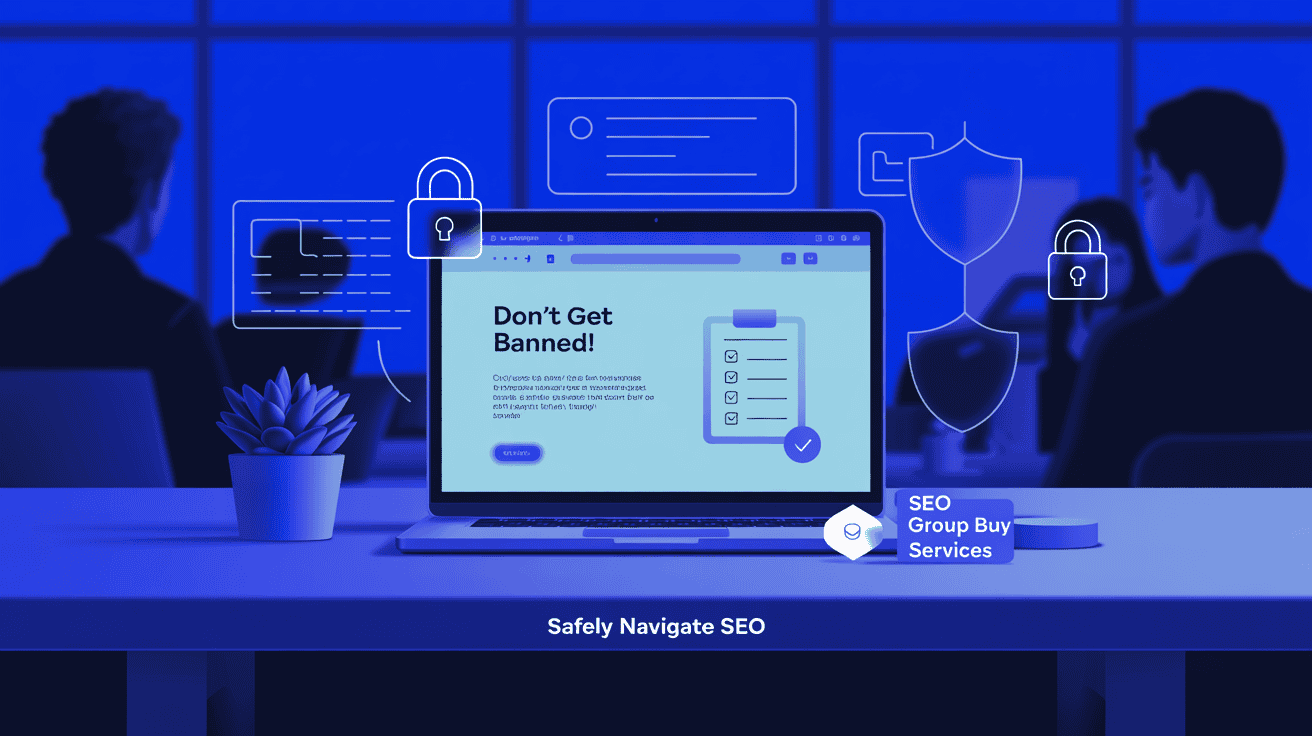
Beyond the cost savings, group buy services provide entry into the world of premium, industry-leading software that is often considered essential for competitive digital marketing and SEO.2 Users gain access to a wide array of powerful tools, including:
- Core SEO Platforms: Ahrefs (renowned for backlink analysis, competitor research, site audits) 6, SEMrush (strong in keyword research, PPC analysis, content marketing tools, site audits) 6, Moz Pro (known for Keyword Explorer, Link Explorer, site crawls, Domain Authority metric).6
- Specialized SEO Tools: Majestic (deep backlink analysis, Trust Flow/Citation Flow metrics) 23, SpyFu (focused on competitor keyword and PPC ad spying) 3, Surfer SEO (on-page content optimization).4
- Content Creation & Optimization Tools: Grammarly Premium (advanced grammar, style, tone, and plagiarism checks) 4, Quillbot (paraphrasing and summarizing) 7, Wordtune (AI-powered rewriting and tone adjustment) 7, Jasper/Jarvis (AI copywriting).7
- Graphic Design & Asset Tools: Canva Pro (user-friendly graphic design for social media, marketing materials) 3, Envato Elements (stock videos, music, graphics, templates) 2, Freepik (vectors, stock photos, PSD files).7
- Other Digital Marketing Tools: Various advertising spy tools, AI platforms like ChatGPT, video creation tools, and sometimes even learning resources like online courses.3
Accessing these tools allows users to perform critical tasks such as in-depth competitor analysis 10, comprehensive keyword research 10, detailed backlink profile analysis 10, technical SEO site audits 10, rank tracking 10, content optimization 10, and pay-per-click (PPC) campaign research.11 This capability enables smaller players to implement sophisticated digital marketing strategies that might otherwise be infeasible due to tool costs.6
The frequent bundling of diverse tool types—spanning SEO analytics, content creation, graphic design, and AI writing assistants—within single group buy packages reflects a broader trend in digital marketing itself.3 Modern digital campaigns are inherently cross-functional, requiring professionals to wear multiple hats and utilize a varied toolkit. Group buy services cater effectively to this need by aggregating popular solutions across different functional areas, offering a seemingly cost-effective way to assemble a comprehensive digital marketing arsenal. Users are often not just seeking a cheap way to get one specific SEO tool, but rather an affordable entry point to the integrated suite of software needed to execute contemporary online strategies.
Furthermore, the prominent marketing of specific “big name” tools like Ahrefs and SEMrush by group buy providers underscores their perceived necessity within the industry, even among users highly sensitive to price.4 These platforms are often positioned as the ultimate, indispensable solutions for SEO success.4 Their high direct subscription costs reinforce this perception of premium value. The fact that many users specifically seek out group buy arrangements primarily to access these particular tools indicates a strong belief in their critical importance. This high perceived value makes the substantial cost savings offered by group buys particularly alluring, often prompting users to rationalize or overlook the associated risks.
Benefit 3: Convenience of Bundled Offerings
Many group buy providers structure their offerings into combo packages, bundling several popular tools together under a single subscription plan.2 This approach offers significant convenience, acting as a “one-stop-shop” for a variety of digital marketing needs.3 Instead of researching, purchasing, and managing numerous individual tool subscriptions, users can potentially gain access to a curated selection of their preferred tools through one provider.3 Some providers even offer a unified dashboard for accessing these different tools, further streamlining the user experience.3 This consolidation simplifies billing and access management, adding another layer of appeal beyond pure cost savings.
3. Understanding the Danger Zone: Key Risks of Group Buy Services

While the benefits of affordability and access are tempting, engaging with SEO group buy services exposes users to a range of significant risks. These risks stem directly from the core operational model of shared accounts, which inherently conflicts with the terms set by the original software providers. Understanding these dangers is crucial before considering such services.
The Core Issue: Shared Accounts and Terms of Service (ToS) Violations
The fundamental premise of SEO group buys involves multiple users sharing access to software subscriptions designed and licensed for individual or limited team use.1 This practice almost universally constitutes a direct violation of the Terms of Service (ToS) agreements mandated by the original tool creators (e.g., Ahrefs, SEMrush, Moz). It is not a legal gray area; it is typically a clear breach of the licensing contract between the provider who purchased the tool and the software company. This foundational conflict—using the tools in a manner explicitly prohibited by the licensor—is the origin point from which nearly all other associated risks emanate.
Risk 1: Account Suspension and Tool Bans (The “Getting Banned” Reality)
This represents the most immediate and impactful risk, directly related to the user query concern (“Don’t Get Banned!”). Software companies actively monitor their platforms for usage patterns indicative of account sharing and ToS violations, often associated with group buy services. When such activity is detected, the original tool provider has the right to suspend or permanently ban the account being shared.9
The consequences for the end-user are severe: sudden and complete loss of access to tools that may be critical for ongoing projects, client reporting, or daily workflows.9 This disruption can halt productivity, jeopardize deadlines, and potentially damage professional relationships if client deliverables are affected. Furthermore, there’s a risk that the user’s personal or payment details associated with the group buy service (or attempts to log in) could be flagged or blacklisted by the original tool provider, potentially hindering future attempts to acquire legitimate subscriptions.
Risk 2: Data Privacy and Security Nightmares

Sharing accounts, whether through direct login credentials or third-party browser extensions/platforms provided by the group buy service, creates inherent and serious security vulnerabilities.4 Users have minimal to no control over who else is accessing the shared account or the security protocols (or lack thereof) implemented by the group buy provider.
This shared environment poses several threats:
- Data Exposure: Sensitive information entered into the tools—such as client website data, proprietary keyword research, competitor analysis reports, campaign strategies, or even potentially linked personal information—could be visible to other anonymous users sharing the account or to the group buy provider themselves.4 While some providers claim privacy measures 4, these claims are difficult to verify and often unreliable in a shared-access model.
- Credential Risk: If users unwisely reuse passwords across services, a compromised group buy account could lead to unauthorized access to other personal or professional accounts. Malicious browser extensions, sometimes required for access, could potentially log keystrokes or scrape browsing data.4
- Malicious Intent: There is always a risk that the provider or other users within the group buy pool could intentionally misuse the shared access or the data contained within the accounts for their own gain.
Risk 3: Unreliable Service and Performance Issues
Despite frequent marketing claims of high uptime (e.g., 99% guarantees) 2, the operational reality of group buy services is often plagued by instability and performance problems.
- Unpredictable Downtime: Because the underlying accounts are constantly at risk of being detected and blocked by the original tool providers, users can experience frequent and unannounced service interruptions.3 Access can disappear precisely when a tool is needed for an urgent task.
- Exhausted Quotas and Limits: Premium SEO tools typically impose usage limits (e.g., number of reports generated, keywords tracked per day/month, site audit crawl credits). In a group buy scenario, these limits are shared among all users on the account.3 Popular tools can have their quotas exhausted quickly by a few heavy users, leaving the tool functionally useless for others until the quota resets.3 While some providers attempt to mitigate this with multiple backup accounts or servers 3, it remains a persistent and frustrating issue for many users.
- Slow Performance: High numbers of concurrent users accessing the same account can potentially lead to slower response times and degraded performance within the tools themselves.
Risk 4: Functional Limitations
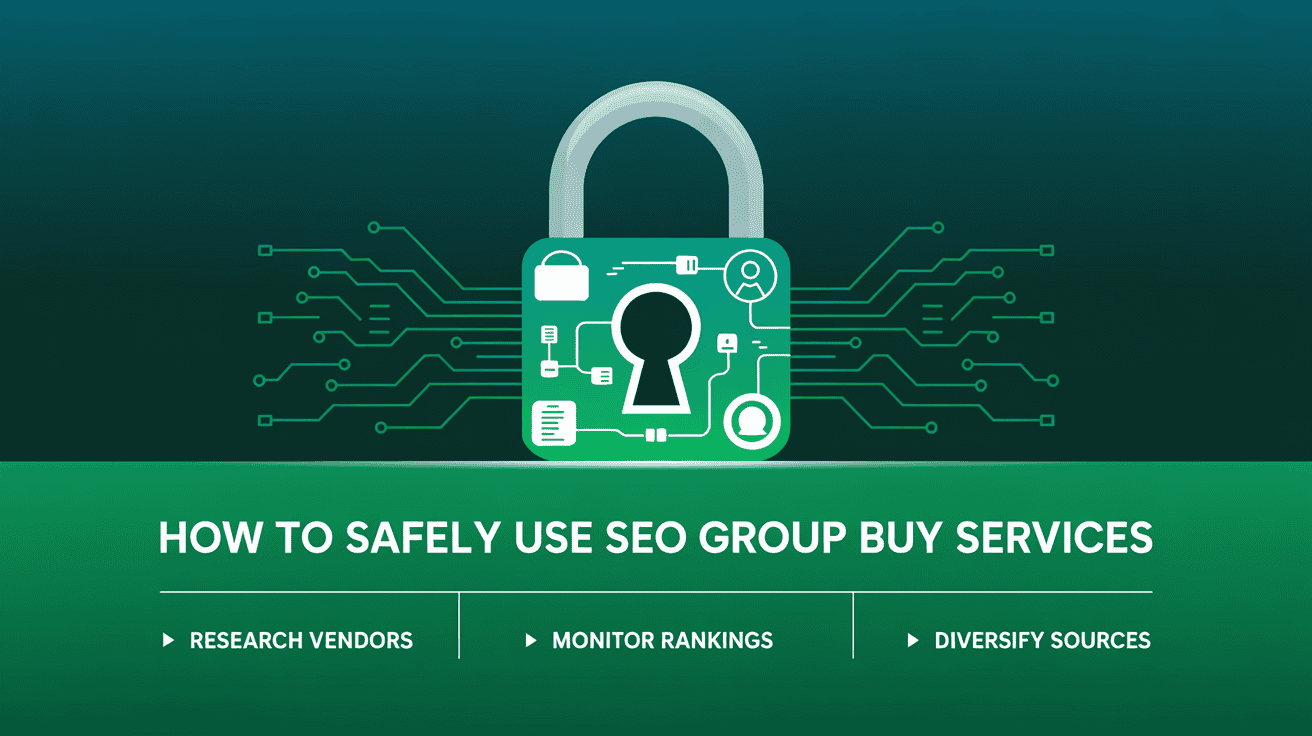
Access provided through group buy services rarely mirrors the full functionality available through a direct, legitimate subscription.3 Users often encounter significant restrictions that can impede effective use of the tools:
- Inability to Save Data: A common and critical limitation is the inability to save projects, campaigns, keyword lists, or site audit histories within the tool.3 This prevents ongoing analysis, progress tracking, and efficient management of long-term SEO strategies or client work.
- Restricted Features: Access to data export functions, API usage (essential for automation and integration), advanced reporting features, or the latest beta functionalities may be disabled or restricted.4 Specific functions like comprehensive site audits might also be limited.4
- Lack of Personalization: Users typically cannot customize tool settings, dashboards, or integrate the tools with their other personal software accounts (e.g., Google Analytics, Search Console) in the way a direct subscription allows.
These limitations mean that users may only be able to perform superficial or ad-hoc tasks, rather than leveraging the full strategic depth and workflow efficiencies the premium tools are designed to offer.
Risk 5: The Threat of Scams and Untrustworthy Providers
The largely unregulated and often anonymous nature of the group buy market makes it a breeding ground for scams and unreliable operators.9 Users face the risk of:
- Paying for Non-Functional Services: Providers may accept payment but deliver access that is broken, severely limited, or non-existent.
- Provider Disappearance: Services can vanish overnight, taking user funds with them, leaving no recourse.
- Misleading Advertising: Providers might falsely advertise the availability of certain tools, claim unrealistic uptime, or fail to disclose significant limitations.
- Difficult Refunds: While refund policies are often advertised 3, actually obtaining a refund can be challenging. Policies frequently contain strict conditions (e.g., requiring proof of continuous downtime for 24 or 72 hours) 3, and unresponsive or defunct providers make claims impossible to pursue.
The various risks associated with group buy services are not isolated issues but are deeply interconnected. The foundational act of violating ToS through account sharing directly leads to the risk of bans. The mechanism of sharing necessitates methods (shared logins, extensions) that create privacy and security risks. Sharing finite resources like account quotas inevitably results in reliability issues and functional limitations. The clandestine and unregulated nature of this market, driven by the ToS violations, provides fertile ground for scams. Recognizing this web of interconnected risks underscores the systemic instability inherent in the group buy model.
Furthermore, the specific functional limitations often imposed—particularly the inability to save projects or track historical data—disproportionately impact users who need these tools for continuous, complex, and client-focused work, such as agencies or dedicated SEO professionals.3 Premium tools are designed with features supporting long-term strategy management, progress monitoring, and customized reporting.10 The absence of these capabilities in many group buy offerings renders them less suitable for sustained, professional SEO management compared to occasional, isolated research tasks.
Finally, the common practice of providers heavily promoting reliability metrics like “99% Uptime” and “24/7 Support” 2 stands in stark contrast to numerous user reports detailing service interruptions, non-functional tools, and inadequate support.8 This discrepancy highlights a significant gap between marketing promises and the operational realities faced by many users. It suggests that the inherent challenges of maintaining shared, potentially flagged accounts make consistent, reliable service extremely difficult to guarantee, regardless of provider claims. This inconsistency emphasizes the critical need for prospective users to seek independent verification through reviews and to approach provider guarantees with skepticism.

4. Proceed with Extreme Caution: A Safety Checklist for Using Group Buys
Disclaimer: It must be explicitly stated that engaging with any SEO group buy service carries inherent risks that cannot be entirely eliminated. The following checklist provides steps to potentially mitigate these risks, but it does not guarantee safety or prevent account bans. The most secure and reliable approach is always to utilize legitimate software channels through direct subscriptions, free trials, or official free versions. Users choosing to proceed with group buys do so at their own risk.
Step 1: Rigorous Provider Vetting
Before committing to any service, thorough due diligence is essential:
- Independent Reputation Research: Do not rely solely on testimonials presented on the provider’s own website. Actively search for independent reviews and discussions on third-party platforms like Trustpilot, specialized forums (approaching communities like Reddit or BlackHatWorld with caution, as opinions can be biased), and social media.5 Look for consistent patterns of complaints regarding account bans, frequent downtime, poor customer support, billing issues, or tools not working as advertised. Be critical of reviews that seem overly positive or generic.
- Operational History: Investigate how long the provider has been in business. Services with a longer, verifiable track record may be slightly less risky than brand-new operations.5
- Transparency Check: Assess whether the provider clearly explains their access method (e.g., shared logins, required browser extensions, custom portal). Are known limitations, such as usage quotas or restricted features, openly disclosed upfront?.3 Lack of transparency is a major red flag.
- Comparative Analysis: Identify several potential group buy providers (common names include Toolsurf, SEO Tool Adda, Toolzbuy, Flikover, SupremSEO, etc.).3 Compare their advertised tool lists, pricing structures, stated features, refund policies, and, most importantly, their independent review profiles.
Step 2: Understanding the (Risky) Terms and Conditions
Carefully review all available terms:
- Provider’s Terms of Service: Read the group buy provider’s own ToS thoroughly. Pay close attention to clauses regarding acceptable use, account sharing restrictions within their system, specific usage limits or quotas, and the exact conditions under which refunds are granted (or denied).5 Understand what actions could lead to the provider revoking your access.
- Original Tool’s Terms of Service: Crucially, remain aware that regardless of the provider’s terms, your use of the service inherently violates the ToS of the original software company (Ahrefs, SEMrush, etc.). This violation is the ultimate basis for potential tool bans initiated by the software developers themselves, over which the group buy provider has no control.
Step 3: Implementing Security Best Practices
Protecting your data and devices is paramount when using shared services:
- Use Strong, Unique Passwords: Never reuse passwords from other accounts. Create a strong, unique password specifically for the group buy service login.
- Avoid Inputting Sensitive Data: Treat the group buy environment as potentially insecure. Do NOT enter confidential client information, proprietary business data, sensitive research queries, or personal project details into the tools accessed via the service.4 Assume any data entered could potentially be viewed by others. Use these tools primarily for general research, non-sensitive competitor analysis, or exploring tool features.
- Consider VPN Use: Employing a reputable Virtual Private Network (VPN) can add a layer of privacy by masking your IP address from the provider and potentially other users. However, a VPN cannot protect data entered within the shared tool account itself from being seen by others sharing that same account.
- Exercise Extreme Caution with Browser Extensions: Some providers require installing custom browser extensions to access tools.4 Be exceptionally wary of these. Extensions can potentially access sensitive browsing data, passwords, or install malware. Thoroughly research the extension’s requested permissions and search for independent security reviews. If possible, use a dedicated browser profile or even a separate computer/virtual machine solely for accessing the group buy service to contain potential risks.
- Utilize Secure Payment Methods: Whenever possible, opt for payment methods that offer buyer protection, such as PayPal or credit cards 2, over methods like direct bank transfers, cryptocurrency, or gift cards, which offer little to no recourse in case of scams or disputes.
Step 4: Managing Expectations and Having Contingency Plans
Approach group buy services with realistic expectations:
- Anticipate Functional Limitations: Understand and accept that you will likely not receive the full, unrestricted functionality of a direct subscription. Features like saving projects, API access, full data exports, or personalized integrations may be unavailable or limited.3 Plan your workflow accordingly.
- Prepare for Service Interruptions: Expect periods of downtime or tools being temporarily unavailable due to account blocks or quota exhaustion.3 Do not rely on group buy services for time-sensitive tasks or critical client reporting where uninterrupted access is essential.
- Develop a Backup Strategy: Maintain access to alternative tools or methods. This could include utilizing free versions of premium tools, subscribing to budget-friendly alternatives, or mastering free tools like Google Search Console and Keyword Planner. Do not depend solely on the group buy service for your essential functions.
- Export Data Regularly: If the service allows data export, make it a habit to frequently save any valuable research or findings externally. Access could be revoked abruptly and without warning, potentially leading to data loss.
Step 5: Recognizing Red Flags and Avoiding Scams
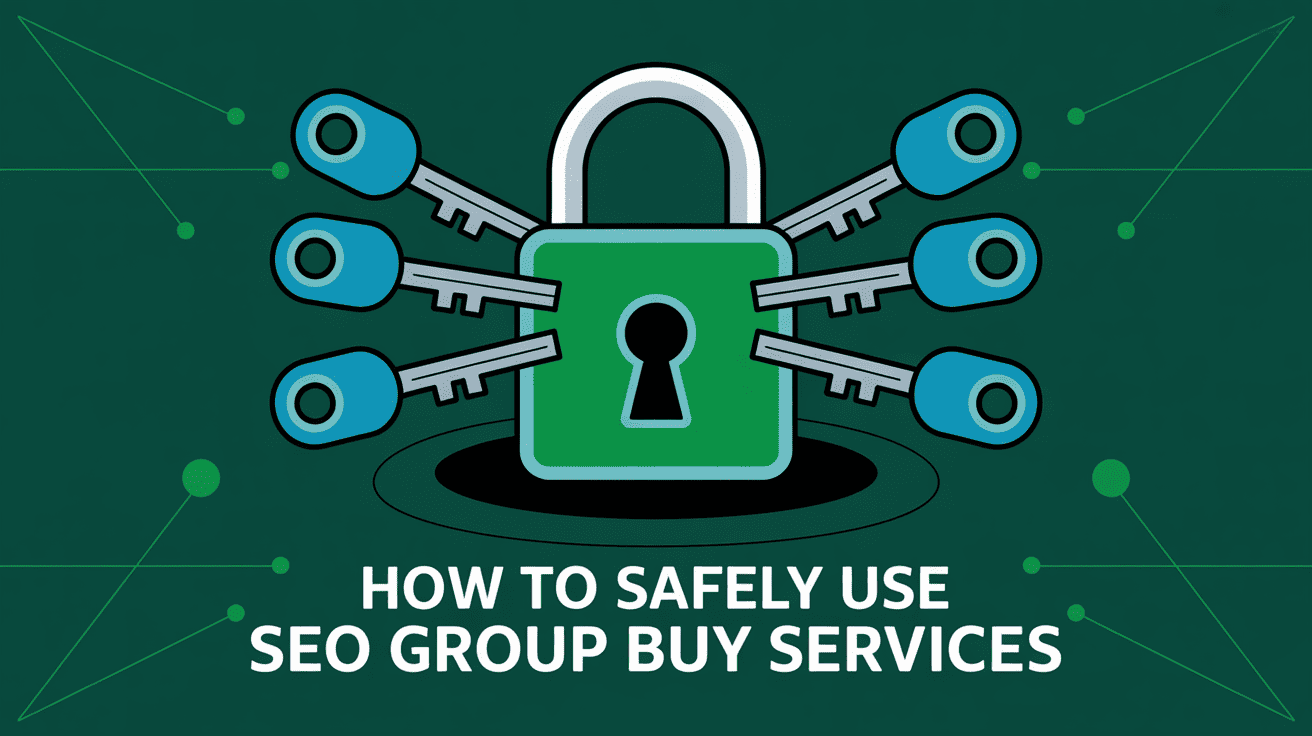
Be vigilant for signs of untrustworthy providers:
- Unrealistically Low Prices: Prices significantly lower than the already reduced rates of other established group buy services could indicate a scam or a highly unstable operation.
- Lack of Verifiable Contact Information or Support: Providers with obscure or non-existent contact details, or those with consistently unresponsive customer support channels, pose a high risk.2 Attempt to contact support with pre-sales questions to gauge responsiveness before purchasing.
- High-Pressure Sales Tactics: Be wary of aggressive marketing, exaggerated claims, or limited-time offers designed to rush a decision without adequate vetting.
- Poor Website Quality: An unprofessional, poorly designed, or error-ridden website can be an indicator of a less reputable or hastily assembled operation.
- Suspicious Payment Requests: Requests for payment via non-standard, irreversible methods like specific cryptocurrencies, wire transfers, or gift cards should be treated with extreme suspicion.
Table 2: Risk Mitigation Strategies Summary
| Risk Area | Mitigation Strategy | Relevant Snippets |
| Account Bans (by Tool) | Rigorous Provider Vetting (Reputation, Longevity); Understand Original Tool ToS Violation Risk; Accept Risk & Have Contingency Plan | 3 |
| Data Privacy & Security | Use Strong, Unique Passwords; Avoid Inputting Sensitive Data; Consider VPN Use; Extreme Caution with Browser Extensions; Dedicated Browser Profile | 4 |
| Unreliable Service/Uptime | Rigorous Provider Vetting (Check Independent Reviews vs. Claims); Expect Downtime/Quota Issues; Have Backup Strategy/Contingency Plan | 2 |
| Functional Limitations | Understand & Accept Limitations (No Saved Projects, API, etc.); Manage Workflow Expectations; Export Data Frequently | 3 |
| Scams & Untrustworthy Providers | Rigorous Provider Vetting; Recognize Red Flags (Price, Support, Website); Use Secure Payment Methods | 2 |
Engaging safely with group buy services demands a considerable investment of time and effort from the user. The seemingly “cheap” price tag carries a hidden cost associated with extensive pre-purchase research, implementing and maintaining security hygiene, continuous vigilance for service issues, and the necessity of developing contingency plans. This required diligence significantly offsets the purely financial savings, meaning the service is not simply inexpensive, but rather inexpensive in exchange for substantial user effort and acceptance of risk.
The very need for stringent security precautions like using unique passwords, avoiding sensitive data entry, considering VPNs, and exercising extreme caution with required extensions implicitly highlights the fundamentally less trustworthy nature of the group buy ecosystem compared to legitimate software access. Users are essentially required to actively defend themselves against potential threats originating from the service they are paying for, a situation starkly different from the assumptions of security and privacy inherent in standard software-as-a-service (SaaS) relationships.
Furthermore, the practical advice to avoid using these services for sensitive client data or business-critical projects, coupled with the need for robust backup plans due to potential unreliability and functional limitations, strongly suggests that group buys are often best suited for supplementary roles. Their most appropriate application may lie in general exploration, learning tool functionalities, non-critical research, or as an occasional supplement to a core toolkit built on more reliable and legitimate free or budget-friendly options, rather than serving as the foundational toolset for a serious professional operation.
5. Safer Harbors: Exploring Legitimate Alternatives

Given the significant risks associated with SEO group buy services, exploring legitimate and safer alternatives is highly recommended. Fortunately, a variety of options exist that can provide access to powerful SEO capabilities without violating terms of service or compromising data security.
Leveraging Official Free Trials and Limited Plans
Many leading SEO software providers offer official free trials or feature-limited free plans, which can be strategically utilized:
- Free Trials: Platforms like SEMrush sometimes offer free trial periods (e.g., 7 days) allowing full access to premium features for a limited time.17 These can be valuable for intensive, short-term projects or deep-dive competitor analysis.
- Ahrefs Webmaster Tools (AWT): Ahrefs provides a substantial free offering for verified website owners. AWT grants access to their Site Audit tool for identifying technical SEO issues and Site Explorer for analyzing backlink profiles and organic keywords for one’s own site(s).47 While focused on owned properties, this delivers significant value.
- Moz Free Tools: Moz offers several free tools, often requiring a free account registration for enhanced data access. These include limited versions of Keyword Explorer (keyword research), Link Explorer (backlink analysis), Domain Analysis, the MozBar Chrome extension (on-page metrics), and MozCast (SERP volatility tracking).47
- SEMrush Free Account: SEMrush also maintains a free account level with limited usage for features like site audit, position tracking, and keyword research tools.47
By combining these official free offerings from different providers, users can often piece together a functional toolkit for basic SEO tasks without cost or risk.47 This availability of robust free tiers serves a dual purpose for the vendors: it provides a genuine alternative for budget-conscious users while simultaneously acting as a potent marketing funnel to attract potential subscribers to their paid plans.47 Users can strategically leverage this “value exchange” to their advantage.
Exploring Budget-Friendly SEO Tool Alternatives
The market offers several legitimate, comprehensive SEO platforms designed specifically as more affordable alternatives to the top-tier players like Ahrefs and SEMrush. These tools provide robust functionality for many common SEO needs at a significantly lower price point, without the risks of group buys:
- Ubersuggest: Frequently noted for its aggressive pricing, Ubersuggest offers features spanning keyword research, content ideas, backlink data, and site audits.5
- Mangools: This suite includes tools like KWFinder (keyword research), SERPChecker (SERP analysis), SERPWatcher (rank tracking), LinkMiner (backlink analysis), and SiteProfiler (SEO metrics overview), known for being budget-friendly and user-friendly.5
- SE Ranking: Offers a comprehensive feature set including keyword research, rank tracking, site audits, backlink analysis, and competitor research, often positioned as a cost-effective all-in-one solution.13
- SpyFu: While sometimes included in group buys, SpyFu offers direct subscriptions focusing heavily on competitor keyword research (both SEO and PPC) and can be a more affordable option depending on specific needs.5
- SEO PowerSuite: A downloadable desktop software suite (rather than cloud-based) that includes tools for rank tracking, site auditing, backlink analysis, and keyword research, offering a ‘free forever’ version with limitations and paid licenses.5
While these alternatives might not possess the sheer scale of data (e.g., backlink index size) of Ahrefs or SEMrush, they provide powerful, reliable, and legitimate capabilities sufficient for many freelancers, small businesses, and marketing teams. The existence of this viable middle ground is often overlooked by users fixated on obtaining the “big name” tools via risky group buys. The choice is not merely between prohibitively expensive premium tools and dangerous group buys; legitimate, powerful, and affordable alternatives exist.
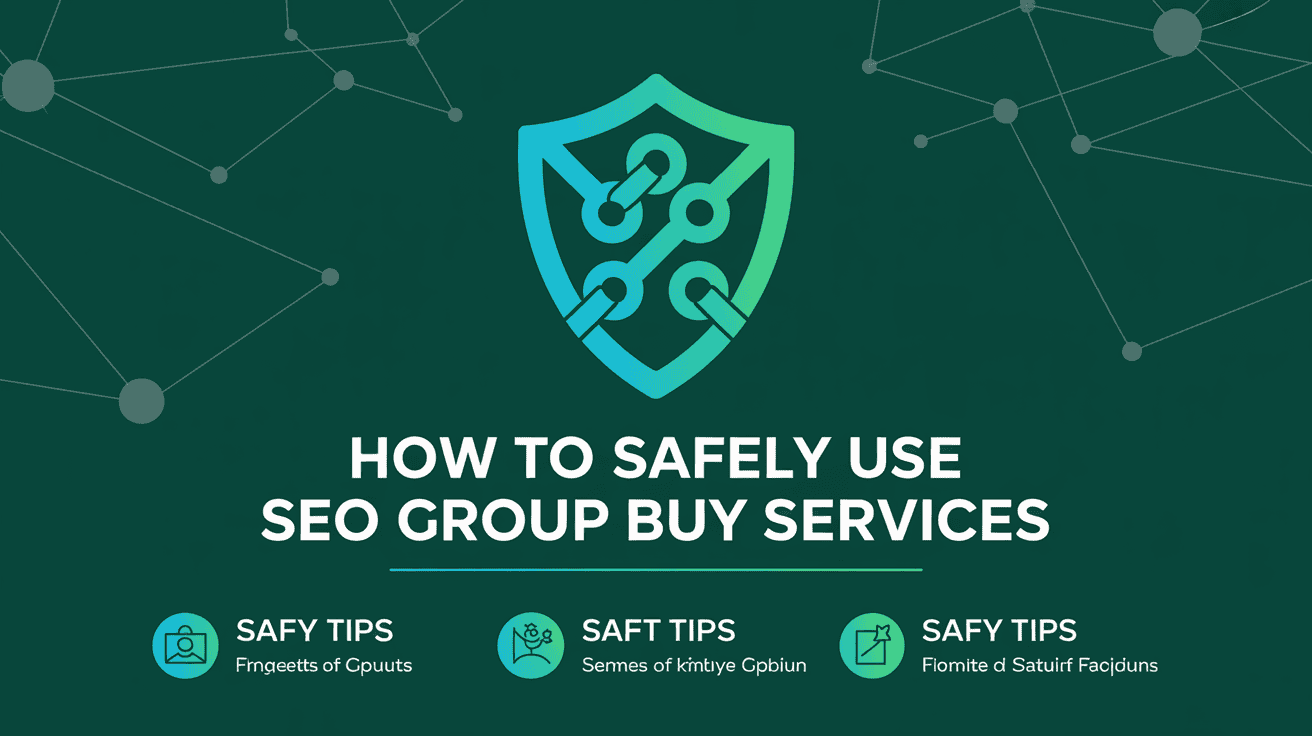
Utilizing Specialized Free Tools
Beyond comprehensive platforms, numerous high-quality free tools excel at specific SEO tasks:
- Google Keyword Planner: Essential for keyword research, providing volume data and ideas directly from Google, particularly useful for PPC but also valuable for SEO.48
- Google Search Console: An indispensable free tool for any website owner, providing insights into organic performance, index coverage, crawl errors, mobile usability, manual actions, and core web vitals.47
- Google Analytics: The standard for website traffic analysis, user behavior tracking, and conversion monitoring.51
- Other Free Utilities: A plethora of free online tools exist for specific needs, such as checking site speed (Google PageSpeed Insights), mobile-friendliness (Google Mobile-Friendly Test), broken link checking, basic backlink analysis, and SERP previews (some offered as limited free tools by premium providers).47
A skilled marketer can accomplish a significant amount by effectively combining these free, specialized tools.
Prioritizing Needs: Do You Really Need Every Tool?
Before resorting to risky group buys, users should conduct a critical self-assessment of their actual requirements. Is constant access to the absolute deepest data index of Ahrefs or the full suite of SEMrush truly necessary for achieving their goals? Or could their objectives be met through a more focused approach?
Consider whether needs can be satisfied by:
- Mastering Google’s free tools (Search Console, Analytics, Keyword Planner).
- Subscribing to a single, affordable, legitimate alternative platform that excels in the most critical area (e.g., keyword research or rank tracking).
- Strategically using free trials for occasional, specific high-level tasks.
- Focusing budget on one key premium tool acquired legitimately, rather than spreading thin resources across a risky bundle of potentially unreliable tools.
Often, a thoughtful combination of free tools and one or two carefully selected, legitimate paid tools (whether budget or premium) offers a more secure, reliable, and ultimately more effective solution than chasing access to everything via group buys.
6. Conclusion: Weighing Savings Against Security
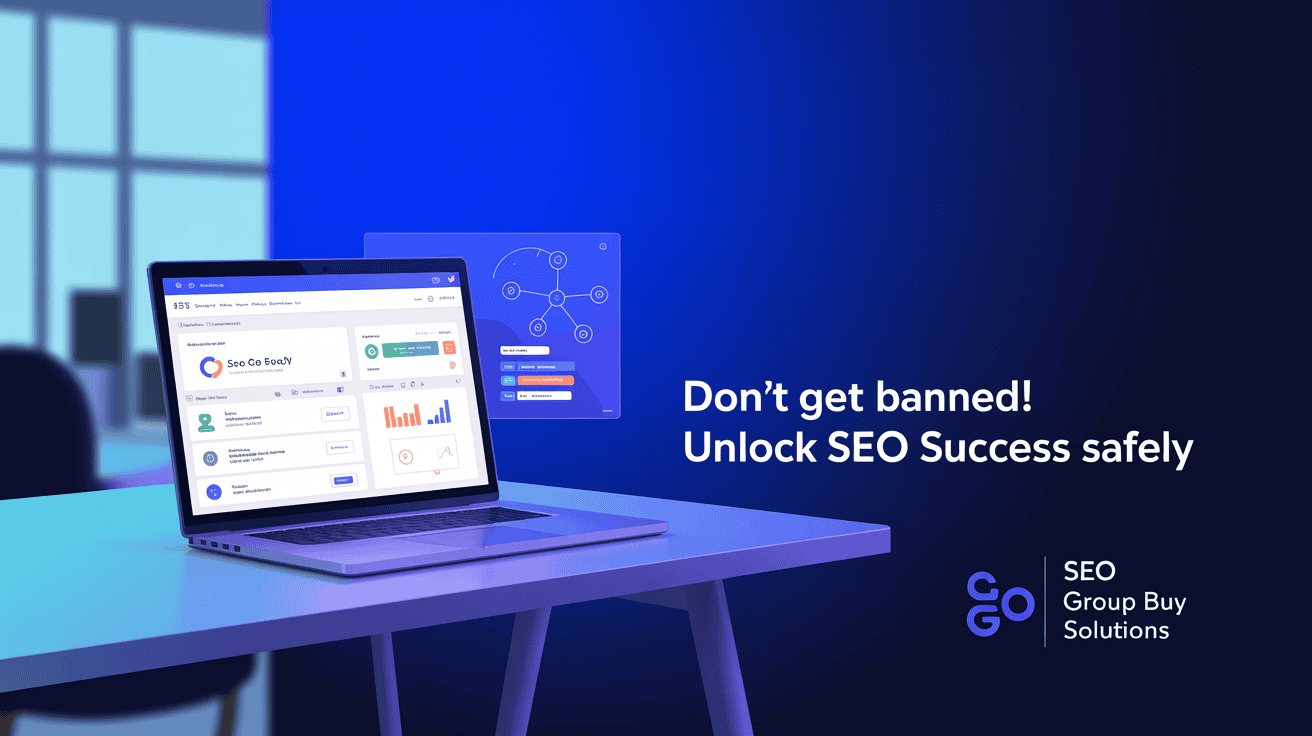
SEO Group Buy services present a tempting proposition: access to powerful, industry-standard digital marketing tools at a fraction of their standard cost. The allure of leveraging platforms like Ahrefs, SEMrush, and others for significantly reduced fees is understandable, particularly for individuals and organizations operating under financial constraints. However, this apparent affordability comes tethered to a cascade of substantial risks that cannot be ignored.
The core issue remains the fundamental model of shared accounts, which directly violates the Terms of Service of the original software providers. This violation is not a mere technicality; it is the trigger for the most significant danger – the potential for sudden account suspension and loss of access. Beyond bans, users face credible threats to data privacy and security within the shared environment, unpredictable service reliability hampered by downtime and exhausted usage quotas, significant functional limitations that curtail the tools’ strategic value, and the ever-present danger of encountering scams or unscrupulous providers in a largely unregulated market.
While this report has outlined a checklist of safety measures – including rigorous provider vetting, understanding terms, implementing security best practices, managing expectations, and recognizing red flags – these steps can only mitigate, not eliminate, the inherent dangers. No group buy service can be considered truly risk-free. Furthermore, implementing these safety measures requires a significant investment of user time and ongoing vigilance, partially offsetting the perceived cost savings. The decision to use such services ultimately boils down to an individual calculation of risk tolerance. Users must carefully weigh the quantifiable financial savings against the potentially severe, though often unquantifiable, consequences of account bans, data breaches, workflow disruptions, or loss of client trust. This report provides the necessary context to make that calculation an informed one.
Given the risks, the most prudent course of action is to prioritize security, stability, and ethical practices by exploring legitimate alternatives first. The digital toolkit landscape offers numerous safer harbors: official free trials and limited plans from premium vendors, robust and affordable dedicated alternative platforms, and a wealth of powerful, specialized free tools provided by Google and others. By strategically combining these legitimate resources and carefully assessing actual needs versus desired access, marketers can often build an effective and reliable toolkit without resorting to the precariousness of group buys.
For most professionals, agencies, and businesses aiming for sustainable growth and operational stability, the potential savings offered by SEO group buy services are likely outweighed by the significant risks to data security, tool reliability, workflow continuity, and professional reputation. The potential damage resulting from a tool ban, a data leak, or reliance on an unstable service can far exceed the monetary cost saved on subscriptions. Therefore, the strong recommendation is to prioritize legitimate, secure, and reliable tool access, safeguarding both operational integrity and peace of mind.

